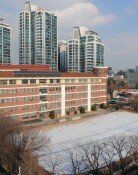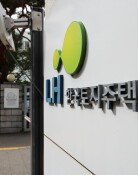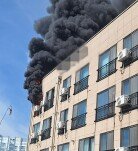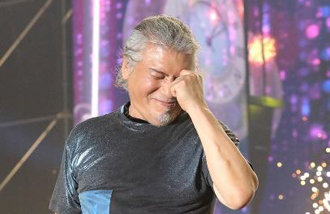Six-Party Talks Enter 3rd Day
North Korea and the U.S. had bilateral negotiations yesterday on the sidelines of the fifth round of the six-party talks on North Koreas denuclearization in Beijing. The two countries confronted each other over the denuclearization process, such as the reporting of Pyongyangs nuclear program and the provision of a light water reactor in return for denuclearization.
Also, the two countries held a second working group meeting following one on December 19 in the North Korean embassy to China to discuss issues related to North Koreas accounts in Macao-based Banco Delta Asia (BDA). But they had only mixed arguments about the illegality of North Koreas accounts at the bank.
Denuclearization Discussion Stuck the BDA issue-
The U.S. offered up specific steps Pyongyang should take in a four-stage process of North Koreas denuclearization (a freeze of the nuclear reactor in Yongbyun, reporting, verification and dismantlement) and the corresponding incentives that Washington would take in response. The U.S. proposed a variety of pairs of each of the stages of the process and its rewards.
But North Korea would not budge an inch from its position that it cannot talk about denuclearization and the corresponding incentives until Washington lifts the freeze on its BDA accounts.
The official newspaper of the General Association of Korean Residents in Japan which speaks for North Korea reported from Beijing, The North Korean delegation opposes Washingtons attempt to discuss the implementation of the Joint Statement on September 19 separately from the lifting of the financial sanctions on Pyongyang.
Some say that Pyongyang proposed that it would freeze the 5MW nuclear reactor in Yongbyun if the asset freeze is canceled in the bilateral discussions with the U.S. on December 19.
But Washington maintains its position that denuclearization talks and the asset freeze are two separate issues.
North Korea also reportedly argued that the written security guarantees and discussions on economic assistance that the U.S. proposed cannot be corresponding incentives for denuclearization. Its logic was that the written guarantees and discussions on assistance can only be rhetoric, while denuclearization is concrete action.
A diplomatic source in Beijing said, While North Korea thinks that there should be energy assistance in return for its freeze of its nuclear reactor, the U.S. plans to launch energy assistance only after reporting or verifying Pyongyangs nuclear facilities.
North Korea also reportedly said about the forming of four to six working groups to deal with issues, such as normalization of relations with the U.S. and energy assistance, Lets talk about it after concluding the financial sanctions problem.
A Prolonged Working Group Discussion on the BDA-
Daniel Glaser, the U.S. chief negotiator to the talks and deputy assistant secretary for terrorist financing and financial crimes, told press correspondents that day, The working group discussions should be a long process, to be productive.
The remark is interpreted as that the working group discussion is at a standstill because the working group presented evidence that Pyongyangs accounts in the BDA was used illegal behavior, including money laundry and circulation of forfeited dollars.
Some of the six parties of the talks said, Most of Pyongyangs BDA accounts are legal, and therefore the U.S. should lift its freeze on legal accounts.
However, the U.S. maintains that it is hard to separate legal and illegal accounts because, in many cases, legal and illegal money in more than 50 North Korean accounts was mixed and deposited again to those accounts.
In the bilateral discussions with the U.S. in New York in March, North Korea proposed to establish a non-permanent consultative body to discuss counterfeit dollars to waive financial sanctions.
Pyongyang also proposed that it would arrest those who counterfeited the currency and confiscate papers and ink used in the counterfeiting and inform the U.S. Treasury Department, if the U.S. provides information that can establish the counterfeiting. But the U.S. refused to accept the proposal.
A Korean government official explained, As the BDA issue is perceived as the representative sanctions on North Korea by the U.S., it is not easy for the U.S. to waive the asset freeze.
Many observers say that the talks would come to an end early without any agreement because both the talks on denuclearization and the working group discussion on the BDA issue show no signs of progress.
A diplomatic source said, It is highly likely that this round of talks ends with a Chairmans Statement which says, We promoted mutual understanding and agreed to discuss further by meeting again as soon as possible. It would be also hard to schedule a next round of talks.
gun43@donga.com weappon@donga.com
Headline News
- S. Korea, US agree on defense const sharing-plan US presidential election
- Medical school quota discussions spark confusion 40 days before exam
- Zuckerberg surpasses Bezos to become world’s second richest person
- Son excluded from October national team due to thigh injury
- Ruing and opposition leaders launch campaigns ahead of by-election







